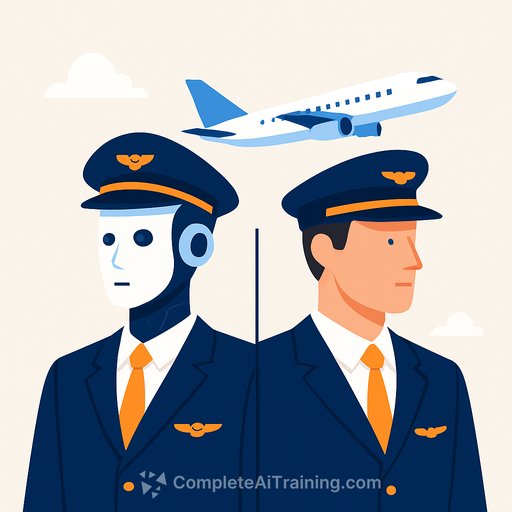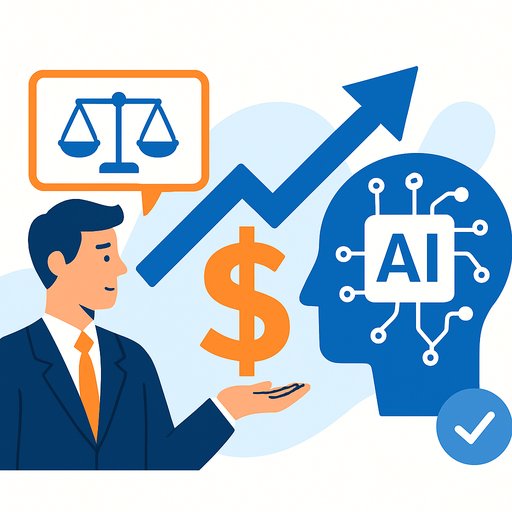Caribbean Tourism Industry Welcomes AI Guidebook 2.0: Practical Steps for Responsible AI Integration
The Caribbean Hotel and Tourism Association (CHTA) has launched the “Artificial Intelligence Transformation Guide for Caribbean Tourism: Version 2.0,” a comprehensive resource for hotels, resorts, and tourism businesses. This updated guide offers clear, actionable strategies to help the Caribbean tourism industry adopt artificial intelligence (AI) effectively while preserving the region's unique cultural warmth.
Building on the initial 2024 edition, Version 2.0 includes new case studies, current AI trends, and real-world examples from across the Caribbean. It also addresses critical areas like data readiness, sustainable AI practices, and ethical governance, providing tourism businesses with the tools they need to integrate AI responsibly.
Technological Shift in Caribbean Tourism
The Caribbean has long been known for its hospitality and vibrant culture. Now, the industry is embracing technology to improve service efficiency and personalize guest experiences. The AI Guidebook helps businesses incorporate AI tools in ways that complement the human touch that defines Caribbean hospitality.
With travelers expecting seamless, tech-enhanced experiences, adopting AI can boost operational efficiency and customer satisfaction. From predictive maintenance to energy management, AI presents practical opportunities for tourism businesses to reduce costs and improve service quality.
Key Sections and Features of AI Guidebook 2.0
The guide is structured into five main sections that provide a clear roadmap for AI adoption in hospitality:
- Foundations of AI and Emerging Technologies: An accessible introduction to AI concepts like machine learning, natural language processing, and robotics, tailored for hospitality leaders.
- Hospitality-Specific Use Cases: Practical examples such as guest personalization, predictive maintenance to prevent equipment failures, and energy optimization to reduce costs and environmental impact.
- Responsible AI Adoption, Data Privacy, and Governance: Guidelines on ethical AI use, data privacy protection, transparency, and compliance with global standards.
- Change Management and Staff Empowerment: Strategies to manage organizational shifts and invest in staff training to effectively use AI tools.
- Trends in AI Technologies: Insights into innovations like AI agents, robotics, and voice interfaces that are changing customer interactions.
The guide encourages businesses to start with manageable AI projects that align with their resources and brand identity.
Balancing AI with the Human Touch
The guide emphasizes that AI should enhance, not replace, human interaction. The warmth and hospitality of the Caribbean remain central to guest experiences. AI can handle routine tasks—such as check-ins and inquiries—freeing staff to focus on personalized service.
Predictive analytics allow businesses to anticipate guest preferences, enabling customized amenities and experiences. This combination of technology and personal attention can improve guest satisfaction and operational efficiency simultaneously.
Building Data Readiness and Sustainability
Effective AI depends on quality data. Many Caribbean businesses face challenges with data collection, management, and protection. The guide offers practical advice on establishing data infrastructure and maintaining compliance with privacy laws.
Sustainability is also a focus. AI can help optimize energy use and reduce waste, supporting greener tourism practices that benefit both businesses and the environment.
Empowering Businesses Through Partnerships
CHTA has partnered with organizations such as Hospitality Financial and Technology Professionals (HFTP) and Growth Advisors International Network (GAIN) to provide additional resources. These partnerships offer access to expert sessions, educational content, and discounts on technology platforms, helping Caribbean tourism businesses stay current with digital trends.
AI’s Role in Future-Proofing Caribbean Tourism
Facing economic and environmental challenges, the Caribbean tourism sector sees AI as a way to remain competitive and adaptable. AI supports scalable operations, personalized guest services, and resource optimization—key factors for long-term success.
As the sector recovers from the COVID-19 pandemic, meeting modern traveler expectations for efficient, personalized, and sustainable experiences is critical. AI provides the tools to meet those demands and strengthen the region’s position in the global market.
Conclusion: A Practical Guide for the Caribbean’s AI Journey
The release of the AI Transformation Guide for Caribbean Tourism: Version 2.0 marks a decisive step toward digital adaptation. It equips hospitality businesses with straightforward knowledge and strategies to implement AI responsibly.
By adopting AI thoughtfully, Caribbean tourism can enhance operational efficiency, improve guest experiences, and retain the personal touch that makes the region a preferred destination. Staying proactive and adaptable will be essential as AI technologies continue to evolve.
For those interested in building AI skills relevant to hospitality and other sectors, resources like Complete AI Training’s latest courses offer practical learning paths to help professionals and businesses stay ahead.
```Your membership also unlocks:





